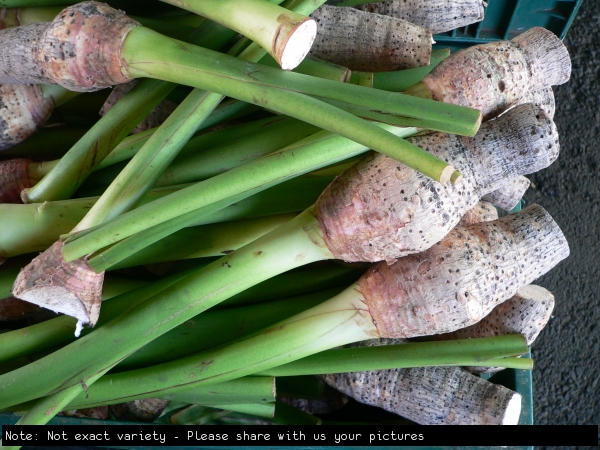Taro Pacific
Colocasia esculenta$21.90
Specifications of Taro Pacific
Preferred Climate Tropical, SubtropicalLearn About Climate Zones
Grown From RhizomeLearn About Propagation Methods
Max Height (when in the ground with good conditions) 1-2m
Plants required to Pollinate 1 (Self Pollinating)Learn about Pollination
Can it Handle Frosts? Sometimes
Amount of leaves in Winter? All Leaves (Evergreen)
Suitability in Pots Yes
Water Requirements Frequent Watering
Is it a Dwarf Fruit Tree? Can be pruned to 2m
Time to Fruit/Flower/Harvest 2-3 Years
Sun or Shade Full (Sun:80%-100%), Part (Sun:50-80%)
Preferred Soil Type Poor Drainage (Clay)
Soil pH Neutral (6.6-7.3pH)
Fruiting/Harvest Months July, August, September
Create a Filter to find similar plants
Customers also bought
These plants are often purchased together. Also check plant information for suitability in your orchard.
Taro Japanese
$17.90 ($17.90-$18.75 choose a size)
Palm - Dwarf Acai
$39.00 ($39.00-$69.00 choose a size)
Walnut - Placentia
$79.00 ($29.75-$79.00 choose a size)
Chestnut - Reilly
$49.00 ($49.00-$79.00 choose a size)
Dwarf Coconut Malay Bronze
$69.00 ($69.00-$89.00 choose a size)
Jujube - Honey Jar
$109.00 ($109.00-$119.00 choose a size)
Customer Tips & Reviews Taro Pacific
TEWANTIN, QLD
Taro Pacific
Very healthy plants I managed to plant another 3 x plants and now I have 7 plants. I cut some of the leaves and gave to my aunty at Gold Coast she cooked taro leaves with coconut cream. Yummy dinner
Taro Pacific
To keep your rootstock through the Winter, in May re-plant into Styrene Boxes with plenty of mulch, plant out again in Sept into position. They will be months more advanced for cropping and have minimul losses. Leaves for Lu are also available all year.

























